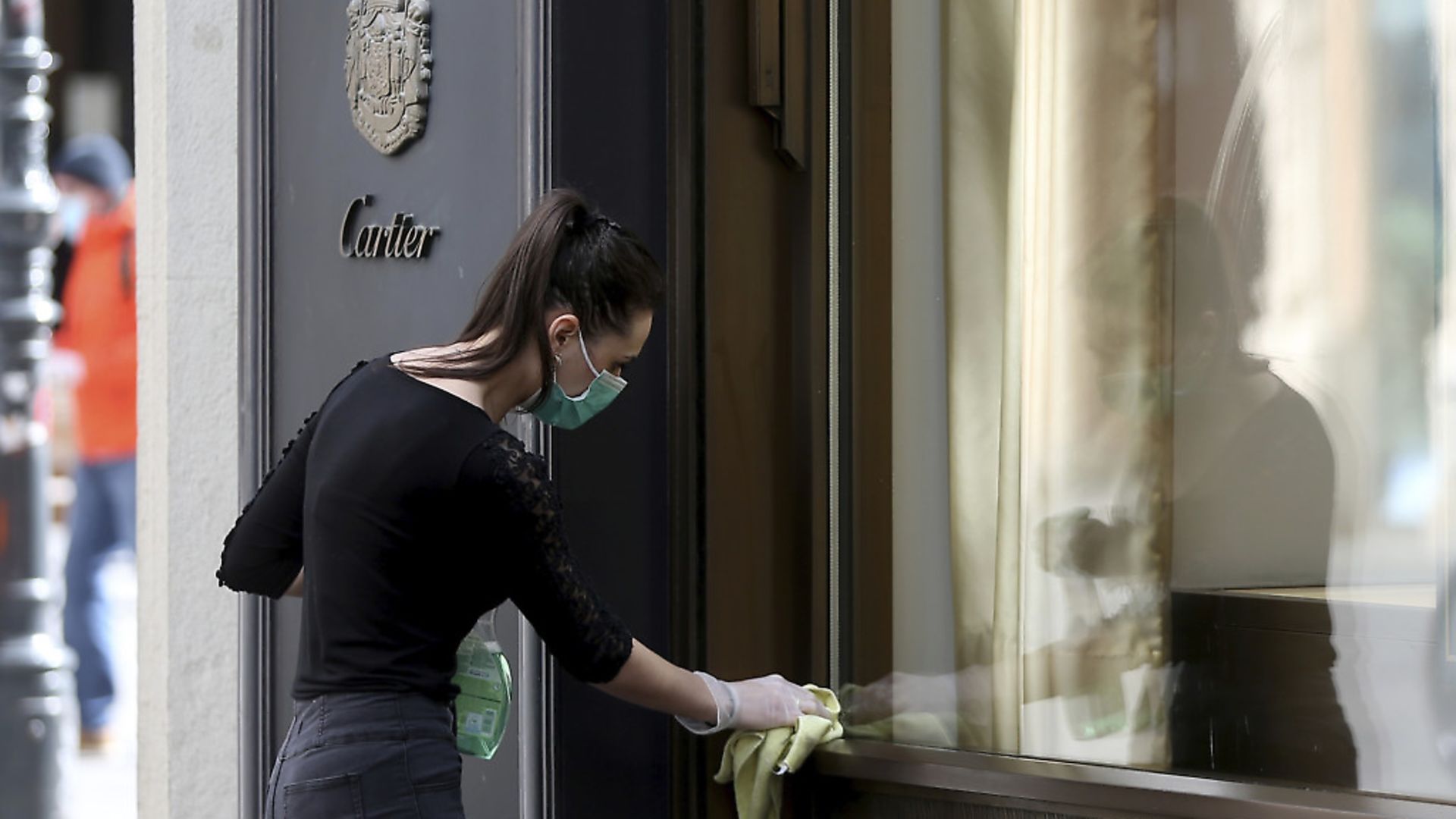
As countries consider how to restart their virus-halted economies, early experiences in parts of Europe and China show it will be no easy task.
Workers back on the job are wary of spending much or going out; shoppers are staying away from the few reopened shops; masks and social distancing measures are not fading; and many fear coronavirus could return if lockdowns meant to stop its spread are eased too much, too quickly.
Still, leaders are anxious to reopen factories, schools and shops and to repair the economic damage from the pandemic that has claimed more than 137,000 lives of more than two million people infected.
Some Chinese cities tried reassuring consumers by showing officials eating in restaurants. In the US, people have started receiving relief cheques to help them pay their bills.
Rome’s streets were largely deserted despite some shops reopening.
Have your say
Send your letters for publication to The New European by emailing letters@theneweuropean.co.uk and pick up an edition each Thursday for more comment and analysis. Find your nearest stockist here or subscribe to a print or digital edition for just £13. You can also join our readers' Facebook group to keep the discussion and debate going with thousands of fellow pro-Europeans.
In the US, with many factories shut down, American industrial output shrivelled in March, registering its biggest decline since the nation demobilised in 1946 at the end of the Second World War. Retail sales fell by an unprecedented 8.7%, with April expected to be far worse.
And troubling data indicates the worst may still be to come in many parts of the world.
UN secretary-general Antonio Guterres is urging stepped-up efforts to prepare Africa, warning that the continent ‘could end up suffering the greatest impacts’.
Singapore’s outbreak has jumped more than 1,100 cases since Monday. It had looked to be successful in containing a first wave of infections, but the new cases are occurring among workers from poorer Asian countries who live in crowded dormitories and work in the tiny city-state’s trade-dependent economy.
New Zealand reported just 15 new cases of coronavirus on Thursday as prime minister Jacinda Ardern began outlining what restrictions imposed during a strict four-week lockdown might be eased from next Wednesday.
Politicians will make a final decision on Monday on whether to proceed with easing the restrictions.
Under Ardern’s plan, primary schools would reopen but attendance would be voluntary, and some business could reopen, including drive-through and delivery restaurants.
Shopping centres and retail stores would remain closed and large gatherings banned.
New Zealand has reported 1,401 cases of Covid-19 and nine deaths. The number of new daily cases has dropped significantly over the past 11 days.
In Brazil, a war of words has broken out over President Jair Bolsonaro’s casual approach to the virus.
‘We’re fighting against the coronavirus and against the ‘Bolsonaro-virus,” Sao Paulo state governor Joao Doria told The Associated Press in an interview, adding that he believes the president has adopted ‘incorrect, irresponsible positions’.
The US began issuing one-time payments this week to tens of millions of people as part of its 2.2 trillion dollar coronavirus relief package. But another part of the relief package, a 350 billion dollar pay protection programme aimed at small businesses, is running dry after being open for only a matter of days. Negotiations are accelerating in Washington over a 250 billion dollar emergency request to help.
The US has recorded more than 30,000 deaths – the most in the world – and over 600,000 confirmed infections, by a Johns Hopkins University count. But the nightmare scenarios projecting a far greater number of deaths and hospital admissions have not come to pass, raising hopes from coast to coast and prompting stronger calls for easing of restrictions.
Foreign leaders, meanwhile, rushed to the defence of the World Health Organisation (WHO) after president Donald Trump vowed to halt US payments to the UN agency for not sounding the alarm over the virus sooner.
EU foreign policy chief Josep Borrell said the WHO is needed now more than ever: ‘Only by joining forces can we overcome this crisis that knows no borders.’









